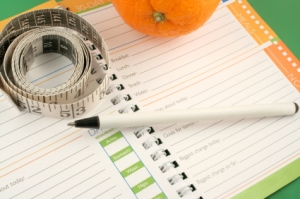I have mixed feelings about putting adolescents and adults together in treatment. I have been on both sides of the equation (treatment as an adolescent and treatment as an adult), and definitely have a stronger opinion about it now that I’m older.
Pros:
- Adolescents can learn a lot from adults who often have been in treatment before and have some more insight into the disorder.
- Adults are (hopefully) more mature and less competitive. Eating disorders in general are competitive… and I’ve just found that when you have a large group of ED high school females in a room, who are not necessarily in the best place, you could be in for a disaster. Sometimes just having a couple of older people in the room is enough to keep everyone from competing as much.
- Adults can learn a lot from adolescents. They have a different perspective, and sometimes you need that.
Cons:
- Being an adolescent and seeing adults in the group can cause some hopelessness that you’re never going to get better. It can give you the sense that people never really do get better and that you’re going to struggle with this the rest of your life.
- As an adult, I often feel like a bad role model — especially if I’m having a hard time and an adolescent is doing well. I feel like as the older, “more mature” one, I should be responsible for setting the example.
- Adolescents still live with their parents and (hopefully) their families are very involved in their treatment. I’m always a little jealous since my parents were pretty anti-treatment and didn’t (and still don’t) think that eating disorders are really problems. Sometimes interacting with others’ parents brings up stuff that you haven’t thought about recently (maybe that’s good, but it feels bad).
- Adults and adolescents have different bodies, ideal weights, nutritional needs, etc. I know adults who have a really hard time being on the same meal plan as a 15-year old, with all the info they’ve heard about slowing metabolisms, muscle loss with age, etc.
- Tiny, underweight adolescents are triggering. It’s hard to not compare yourself to someone who is 15.
- Adolescents and adults are (obviously) at different stages in life. Sometimes it’s hard to relate to one another and certain sessions may not seem helpful for one group or the other.
This is just the start of a list — I’m sure there are 100 reasons. Personally, as an adolescent, I was really happy to be in treatment with older women. I really looked up to them and thought that they were so wise — they knew so much and had so much insight. There were a couple of people who I wanted to be like. There were also people who I did not want to be like, and it was motivating to me. I definitely told myself that I would NOT be one of those adults with an eating disorder. It wasn’t until I WAS an adult that I started feeling guilty about still struggling and/or being a bad example.
 For the first 5 years of my treatment, I kept a food log. Yes, I have a record of everything that I ate for 5 years… which is now completely useless, but at the time I thought it was a helpful tool. I counted exchanges (rather than calories), drew pictures to illustrate my days, and wrote any feelings that came up during the day. My therapist and nutritionist would review it every week… which was also useful, since I am really bad about brining up things that aren’t bothering me at the moment (meaning, if Tuesday was an awful day but it’s now Friday, and things are okay…. I wouldn’t bring up Tuesday’s events).
For the first 5 years of my treatment, I kept a food log. Yes, I have a record of everything that I ate for 5 years… which is now completely useless, but at the time I thought it was a helpful tool. I counted exchanges (rather than calories), drew pictures to illustrate my days, and wrote any feelings that came up during the day. My therapist and nutritionist would review it every week… which was also useful, since I am really bad about brining up things that aren’t bothering me at the moment (meaning, if Tuesday was an awful day but it’s now Friday, and things are okay…. I wouldn’t bring up Tuesday’s events).
